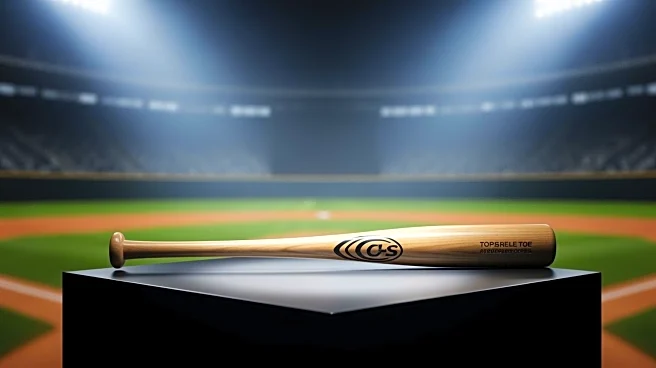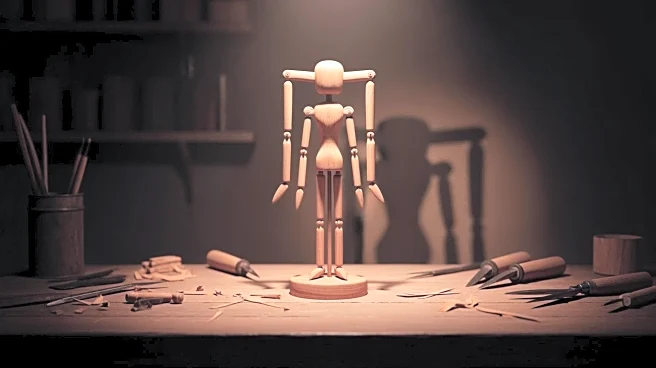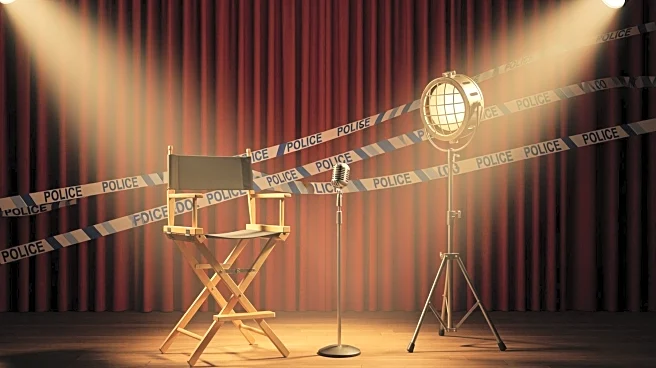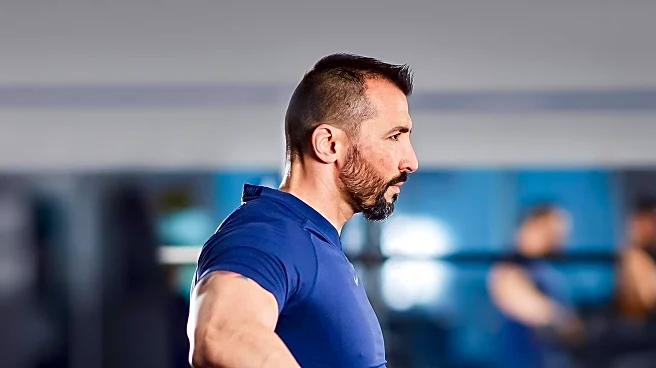What's Happening?
Philadelphia Phillies superstar Bryce Harper expressed disappointment over comments made by Dave Dombrowski, the team's president of baseball operations, questioning Harper's ability to return to elite
form after a statistically down year. Harper, who has six years remaining on his $330 million contract, was hurt by the speculation that the Phillies might consider trading him. Despite missing a month due to a wrist injury, Harper played 132 games, hitting 27 home runs with a .261 batting average and an OPS of .844, his lowest since 2016. Dombrowski clarified that the team is not looking to trade Harper, emphasizing his importance to the team and expressing confidence in Harper's future performance.
Why It's Important?
The comments and subsequent speculation about Bryce Harper's future with the Phillies highlight the pressures and expectations placed on high-profile athletes. Harper's situation underscores the challenges of maintaining elite performance levels and the impact of injuries on a player's career. The trade rumors could affect team dynamics and fan sentiment, as Harper is a key figure in the Phillies' lineup. The situation also reflects broader themes in professional sports, where player performance is closely scrutinized, and management decisions can significantly influence team morale and public perception.
What's Next?
Bryce Harper has expressed his desire to remain with the Phillies for the duration of his career, despite the trade speculation. The Phillies management, including Dombrowski, will likely need to address the situation to ensure team cohesion and reassure Harper of his value to the organization. As the offseason progresses, the Phillies may focus on strengthening their roster and addressing any internal concerns to improve their postseason performance. Harper's commitment to the team and his potential return to elite form will be crucial for the Phillies' success in the upcoming season.
Beyond the Headlines
The situation with Bryce Harper and the Philadelphia Phillies raises questions about the relationship between athletes and management, particularly in terms of communication and support. Harper's public response to the trade speculation highlights the emotional and psychological aspects of professional sports, where athletes must navigate public scrutiny and internal team dynamics. The incident may prompt discussions about how teams can better support their players, especially those recovering from injuries, to foster a positive and productive environment.









